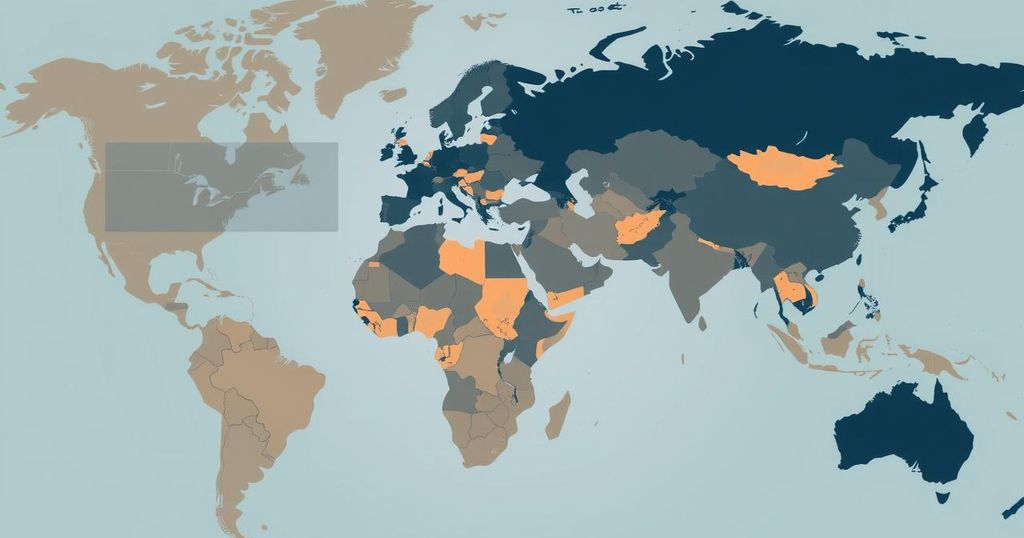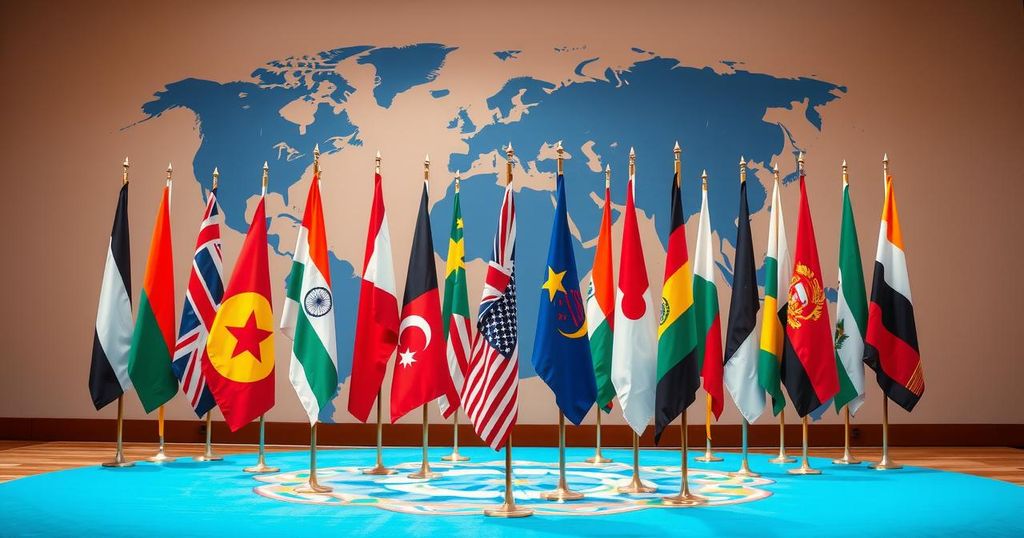Global news
ACLU, AFRICA, AMERICAN CIVIL LIBERTIES UNION, CUBA, DHS, HUMAN_RIGHTS, INTERNATIONAL REFUGEE ADMISSIONS PROJECT, INTERNATIONAL RELATIONS, IRAP, NORTH AMERICA, SANCTIONS, SOUTH AMERICA, STATE DEPARTMENT, SUDAN, SUPREME COURT, TERRORISM, TRUMP, U. S, U. S. SUPREME COURT, US, VENEZUELA
Marcus Li
0 Comments
Potential New US Entry Restrictions for Select Countries Under Review
The Trump administration plans to impose new travel restrictions affecting several countries, potentially including Afghanistan and Pakistan, following an Executive Order aimed at increasing security. The proposal has met widespread criticism from advocacy groups concerned about the impact on vulnerable populations, particularly refugees. An official announcement detailing the affected nations is expected shortly, as the State Department and DHS finalize their assessments.
The Trump administration is poised to introduce new travel restrictions for several countries, including Afghanistan, Pakistan, Iran, Libya, Somalia, Sudan, Syria, Yemen, Chad, North Korea, and Venezuela. This initiative follows an Executive Order issued on January 20, which mandates federal agencies to evaluate countries lacking robust security screening and vetting protocols. Current discussions are focusing on potential partial or full prohibitions on admissions from these nations, with an official announcement anticipated soon.
During President Trump’s previous tenure, a series of travel bans began in 2017, targeting certain countries, which faced significant opposition and was labeled a “Muslim Ban” due to its focus on predominantly Muslim countries. Despite facing numerous legal challenges, the U.S. Supreme Court upheld the third iteration of the ban in 2018, reaffirming the administration’s authority to impose national security measures.
While the final roster of restricted countries has yet to be confirmed, it is notable that Afghanistan and Pakistan are under close examination for potential travel restrictions. Advocacy organizations, such as the International Refugee Admissions Project (IRAP), have raised alarms about the severe repercussions these restrictions could have, particularly for Afghan refugees, including those holding Special Immigrant Visas (SIVs) escaping Taliban threats.
Moreover, concerns have arisen regarding Pakistan, as it is scrutinized for security issues and insufficient vetting processes. Inclusion of Pakistan in the travel restrictions could adversely affect thousands of its nationals seeking entry into the U.S.
The response to the proposed travel ban has been overwhelmingly negative, with civil rights groups, like the American Civil Liberties Union (ACLU), denouncing it, arguing that it would violate fundamental rights. Furthermore, critics contend that the State Department and the Department of Homeland Security (DHS) already maintain some of the most stringent vetting procedures globally, rendering further limitations unwarranted.
In accordance with the Executive Order’s stipulations, the State Department and DHS have a deadline of 60 days to finalize their recommendations for countries that could face travel restrictions. As this period draws to a close, an official statement is imminent.
In summary, the Trump administration is expected to announce new travel restrictions affecting several countries, including Afghanistan and Pakistan, as a result of ongoing security assessments. Advocacy groups express deep concern over the implications for refugees, particularly in light of past experiences with travel bans. Criticism from civil rights organizations indicates widespread opposition to these potential restrictions and highlights existing stringent vetting practices. The administration’s final decision is anticipated soon, influenced by the required evaluations.
Original Source: www.travelandtourworld.com




Post Comment